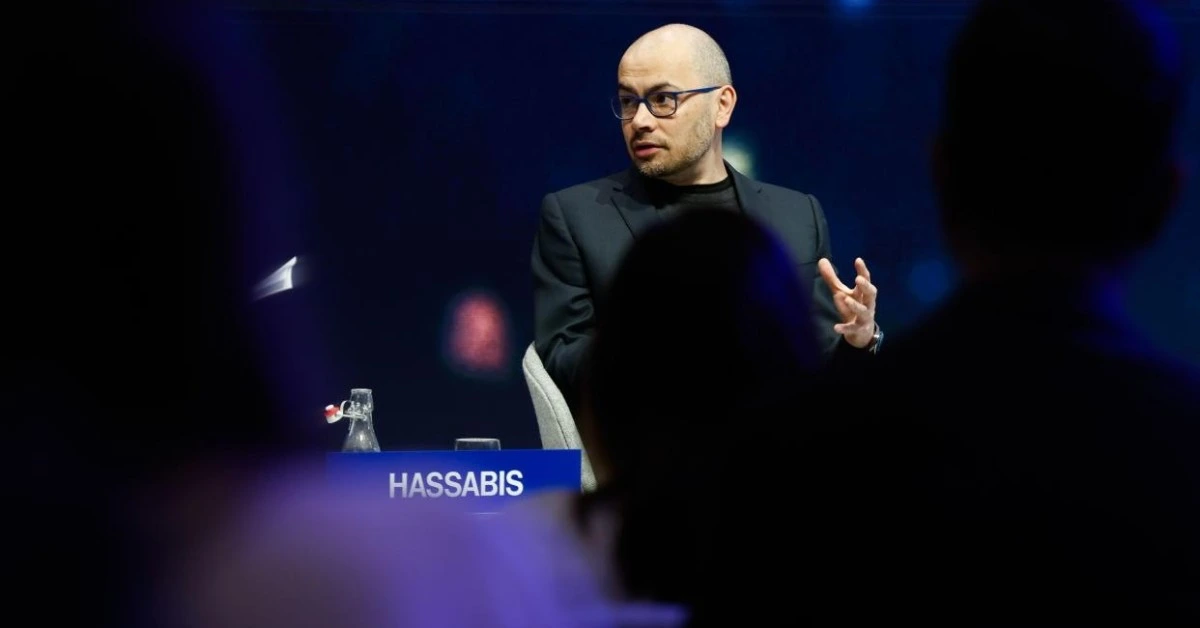
SWITZERLAND – Nobel laureate and CEO of Google DeepMind, Demis Hassabis, expressed optimism on January 21 regarding the future of artificial intelligence (AI) in pharmaceuticals.
During a fireside chat at the World Economic Forum in Davos, Switzerland, Hassabis predicted that AI-designed pharmaceutical drugs would enter clinical trials by the end of 2025.
These drugs are being developed by Isomorphic Labs, a for-profit venture established by Alphabet, Google’s parent company, in 2021. The initiative aims to reinvent drug discovery using AI principles.
Hassabis noted that while large language models have garnered significant attention, AI’s applications in science extend far beyond these models and technologies like AlphaFold.
AlphaFold2, a model that predicts protein structures, earned Hassabis and colleague John Jumper the Nobel Prize in Chemistry in 2024 for solving a longstanding biological challenge.
“That’s the plan,” Hassabis affirmed regarding the clinical trials of AI-designed drugs. Last year, Eli Lilly and Novartis formed strategic research collaborations with Isomorphic.
Lilly invested US $45 million upfront to discover small molecule therapies targeting multiple diseases, with the potential for up to US $1.7 billion based on milestones.
Similarly, Novartis paid US $37.5 million upfront, with Isomorphic potentially earning an additional US $1.2 billion.
A groundbreaking advancement in science
Ardem Patapoutian, a 2021 Nobel laureate in Physiology or Medicine and a professor at Scripps Research, joined Hassabis at the panel and described AlphaFold as “one of the most amazing, quick advancements in science I’ve ever experienced.”
Patapoutian highlighted the model’s ability to streamline protein structure prediction, noting that it previously took years of work for Ph.D. students to determine the structure of a single protein. “With AlphaFold, you just type in the sequence and it tells you the structure,” he said.
AlphaFold has already predicted the structures of 200 million proteins, a task that would have taken an estimated billion years using traditional methods.
The newest version, AlphaFold3, has expanded its capabilities to analyze protein interactions, including with other proteins, ligands, and DNA/RNA.
Both Hassabis and Patapoutian discussed AI’s potential to unravel the mysteries of brain function.
Patapoutian noted that while current technology can predict behaviors in simpler organisms, understanding the behavior of more complex brains remains a major challenge.
“Despite decades of research, we still really don’t understand how the brain works,” he explained. AI could play a crucial role in advancing this understanding, which he referred to as one of the “Holy Grails of neuroscience.”
Hassabis elaborated on AI’s full-circle development, where the structure of the brain inspired the creation of AI’s neural networks, and now AI is poised to help scientists understand the brain.
AlphaFold3’s role in advancing personalized medicine
He also spoke about AlphaFold3’s potential to explore how mutations could alter protein structure and function, a critical step toward personalized medicine.
“Eventually, I see the advent of personalized medicine, where a drug is optimized for each individual’s metabolism,” he predicted.
Looking to the future, Hassabis shared his vision for a “virtual cell” simulation that could revolutionize biological research.
Patapoutian explained that understanding the context of where proteins are located within a cell could yield more valuable insights than just knowing their expression levels.
He also asked about the data used to train AI models, to which Hassabis explained that his team uses both public datasets and specialized synthetic data generated by companies they hire.
On the subject of artificial general intelligence (AGI), Hassabis cautioned against overly optimistic predictions.
He believes that while AI is “over-hyped in the near term,” its potential remains underappreciated in the medium- to long term.
Hassabis suggested that AGI could emerge in the next five to 10 years, but only after major breakthroughs in reasoning, planning, and true creativity.
He noted that AI systems currently lack the ability to produce creative innovations like Einstein’s general theory of relativity, based on the knowledge available at the time.
“Could you come up with general relativity like Einstein did?” he asked. “I don’t think any of our systems could do anywhere close to that.”
XRP HEALTHCARE L.L.C | License Number: 2312867.01 | Dubai | © Copyright 2025 | All Rights Reserved